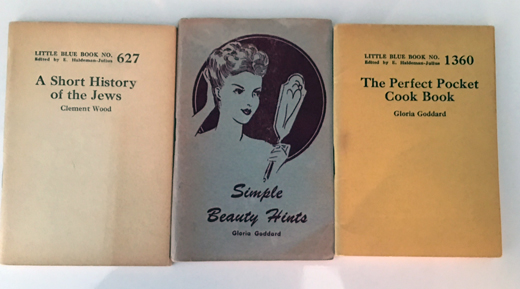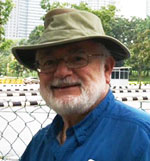
By Oliver B. Pollak

RICHMOND, California — We come to the books we read from many directions. It could be newspaper and magazine reviews, suggestions from trusted friends, NPR reviews, looking at bookstore recent arrivals, ‘the book club is now reading,’ gifts from friends and family, looking over shoulders on the airplane, going to book signings, eavesdropper suggestions, and many more.
My most recent bizarre or bashert incident was an introduction to The Weight of Ink by Rachel Kadish which appeared in 2017 and in paperback in 2018. I could have seen it in the New York Times Book Review, The Jewish Review of Books (I am a charter subscriber), an online Jewish Book Council suggestion, cross selling online blurbs – “people who bought this book also purchased this book,”- or wherever? But I may have resisted. My reading list fills more than my dance card can hold. I don’t read in bed at night as much as I once did. I may experiment with changing the bulb or go LED. But sleep is good too. Moreover, this book was fiction, not to be disregarded, but it cuts into my intellectual priorities, unless it is work-related fiction.
During a nine-day period in June we happened to meet three children under the age of two named Oliver. Hearing is sensitive, a spouse’s voice or our name uttered in the supermarket can be heard from an amazing distance. The first Oliver was at Whole Foods in Berkeley. Karen took a picture. The second was at the same Whole Foods. I took a picture. The third was at the Verizon store in El Cerrito, 1.7 miles away, and the store manager proudly texted me a picture.
We do not know how Oliver #1 got his name, Karen did not ask. The mother of Oliver #2 mentioned liking Oliver Sacks and said “Ask my husband.” I suggested they might look at Uncle Tungsten (2001), Sacks’ account of his London childhood. Oliver #3 got his name because his parents wanted something “not popular” and with three syllables. If he had been a she, she would have been Abigail. I would have been Olivia. To their surprise the pediatrician was seeing lots of patients named Oliver. Maybe this East Bay epidemic should be reported to the CDC. Actually, Oliver is currently in the top three American names parents choose for their sons, and you can be pretty sure it is not honoring a deceased family member. Oliver has long been popular in England.
I mentioned to the manager that my parents were refugees from Austria and Germany living in London. The Jews had been expelled from England by King Edward I in 1290. They were readmitted by Lord Protector Oliver Cromwell in 1656. Hence, my namesake was favorably disposed to the children of Israel. Oliver #3’s father was not Jewish, but thinks there were Jews on his wife’s grandmother’s side.
Each meeting with an Oliver led to deeper questioning, from isolated incident to flash mob. And I am rich with reading suggestions.
Unbeknownst to me at Verizon we were being eaves dropped. A woman mentioned she was currently enthralled in the paperback edition of The Weight of Ink which mentions the 1650s re-admission of the Jews and an Oliver, Cromwell (about the time Amsterdam’s Jewish community expelled Spinoza). That led to another schmooze session, turns out she was retired and a seven-minute bicycle ride away.
Off to Barnes and Noble to purchase the book. They could have it in three to five days. I requested a review copy. But, I couldn’t wait, I was impatient, and purchased online a former San Mateo County Libraries copy for $12.23. How a book can be deaccessioned so quickly is a story for another time.
One of life’s coincidences fell into my lap. I consumed the 567-page book in three days, the book consumed me for three days. I put off finishing my review of Tasting the Past.
The Weight of Ink is an historical novel involving the discovery of a cache of Jewish letters in a 17th century house in Richmond on Thames in England, near where my grandmother lived from the mid 1930s to her death in 1961. From letters written in the 1650s to 1691, two scholars unravel the tale of the free thinking Amsterdam Portuguese female scribe for a rabbi blinded by the Inquisition. Compelling reading on multiple levels. Oliver Cromwell is on page 46. Reading the book delightfully disrupted my work schedule.
Two thirds of the way through the book I happened across an unpublished 467-page typescript, The Story of Food by Gloria Goddard and Clement Wood (also the author of A Short History of the Jews), on Abebooks at a price I could afford. My interest in Goddard and spouse Wood goes back to 2006. Perhaps you can imagine my glee and anticipation awaiting the typescript while I am reading about two fictional 21st century scholars, one a 26-year-old Jewish American with relationship issues working on his doctorate, the other a woman professor in failing health on the cusp of retirement, frustrated in love and with the male academic establishment, examining 17th century manuscripts.
My wife is now reading The Weight of Ink representing another example of how people choose what to read. These seemingly unrelated occurrences comprise a story under the rubric ‘one thing leads to another.’
*
Pollak, a professor emeritus of history at the University of Nebraska Omaha, and a lawyer, is a freelance writer now based in Richmond, California. He may be contacted via oliver.pollak@sdjewishworld.com